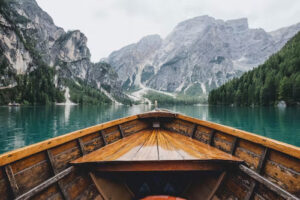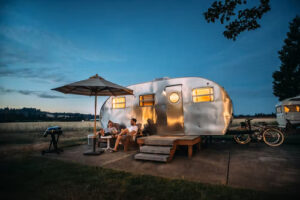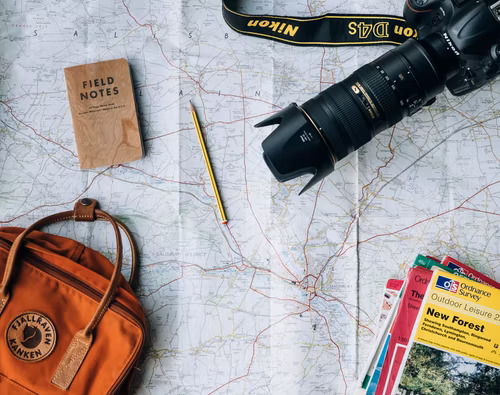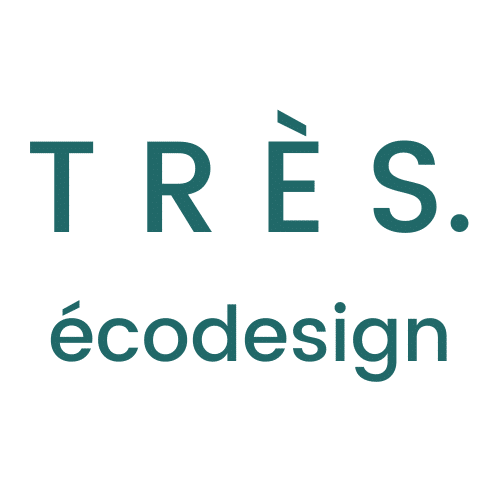Slow Tourism,
a new way to travel without pressure
Definition of slow tourism.
The notion of slow tourism, also called slow travel or slow tourism, first saw the light of day in 1999. That year, 4 mayors of small towns in Tuscany decided to found the Cittaslow label (“slow city” in Italian) guaranteeing regional development and gentle roaming. Inspired by the slow food movement (you will find an article on this subject very soon) The notion of Slow Tourism has therefore existed for many years, but it is since the recent unprecedented event, well known to all, that it has gained unparalleled momentum.


You guessed it, the Covid-19 pandemic has had an impact on the way people consume and live. More and more French people have made the decision to travel more responsibly, in opposition to mass tourism. The famous dream vacations inspired by Pinterest or Instagram are no longer the same since this global crisis, global awareness has been accelerated. Following the travel restrictions imposed by the government, the French have learned to re-appreciate traveling to French cities; Bordeaux, Toulouse and Marseille have been able to take advantage of this new trend.
The very principle of Slow Tourism is to take the time to live, to contemplate the landscapes that surround us while favoring local encounters. The traveler takes the time to soak up the environment around him; slowness seems to be one of the essential conditions to leave room for emotions, surprise or even the unexpected. Adopting Slow Tourism means questioning your way of traveling and bringing a humanist dimension to it.
THE ADVANTAGES OF SLOW TOURISM.
This new form of tourism is a real mindset.
Slow tourism offers many undeniable advantages for the traveler, the planet, as well as local populations.
◉ Take the time to release the pressure
The question of time is at the heart of slow tourism, both in France and abroad. Obviously the perception of time is unique to each person. This is experienced differently by each person. While some people will take 3 days to visit a city and consider it enough, others will find it far too short and such a short duration could be a source of stress. Everyone experiences Slow Tourism in their own way, at their own pace, in order to take the time to relax. It’s not just the quantity of time, but also the quality of it. The important thing is not to overuse your free time, but to fully enjoy each activity. In short, disconnect from reality to find yourself better.
◉ Favor experiences by refocusing on the essential
Who says discovery, also says favoring encounters and experiences. Slow tourism promotes human relationships, sensations and emotions, this is the very essence of this notion. Activities are no longer consumed, they are fully experienced.
◉ Enjoy nature
In slow tourism, quality takes precedence over quantity. The important thing is not performance or ticking the boxes of places to “do”. On the contrary, the objective is to do less, but do it better. This is where all the magic of the present moment lies. Rather than posting a photo on social media right now, the traveler appreciates and makes the place their own, taking the time to experience it with their five senses. Slow tourism favors this idea of disconnection, and for this reason natural spaces are therefore spontaneously privileged places. These are the best places to reconnect with your inner self, recharge your batteries and slow down the pace of daily life.
◉ Savor local products
Finally, slow tourism rhymes very well with epicureanism. Travelers are fond of little gourmet pleasures and often indulge in tastings of local products. So far nothing surprising when we remember that slow tourism stems from the slow food movement.
◉ Limit your ecological impact
The very essence of slow tourism is to consume better the way you travel. And for this, the preferred means of transport are obviously the least polluting. The plane should be banned in favor of clean means of transport such as cycling, river transport, or even walking. These means of transport, often less used by travelers in their daily active lives, are yet another source of change of scenery. This also offers the possibility of detecting places that are often impossible to access by car.
SOLLEN’S TIPS FOR SUCCESSFUL SLOW HOLIDAYS.
◉ Forget the To Do List.
Avoid (too much) planning, live day by day, it's the best way to be in perfect harmony with the state of mind for your trip. Choose a maximum of one planned activity per day, and take advantage of the free time to live in the present moment, and deal with the unexpected which may have some nice surprises in store for you.
◉ Learn to listen to yourself and trust yourself.
Taking advantage of the present moment also means listening to your desires, and acting according to them. Nothing happens by chance, and chance does things well. So follow your intuitions, and don't hesitate to think outside the box if your heart tells you to.
◉ There are no good or bad examples.
By carrying out your research on the internet or on social networks you will find different testimonies of slow tourism, but each experience is specific to each person. Some travelers practice slow tourism by staying with locals on the other side of the world. While others prefer to explore their region or their own country taking their time. There is no specific definition or rule to follow, the experience of slow tourism is done according to your desires.

Slow tourism, a new way of traveling in the making...
While today's world continues to make us live at a hundred miles an hour, the phenomenon of slow tourism is there to remind us how pleasant and important it is to take our time. By conviction or by a simple need to disconnect from the usual routine, the number of people who opt for this mode of tourism is increasing sharply. Respectful, accessible and with an unprecedented human dimension, Slow Tourism brings unprecedented inner peace, a true state of mind and even a philosophy. It is in the face of the consequences of mass tourism that slow tourism was truly evident, and its development seems to be the answer to the tourism of tomorrow.




